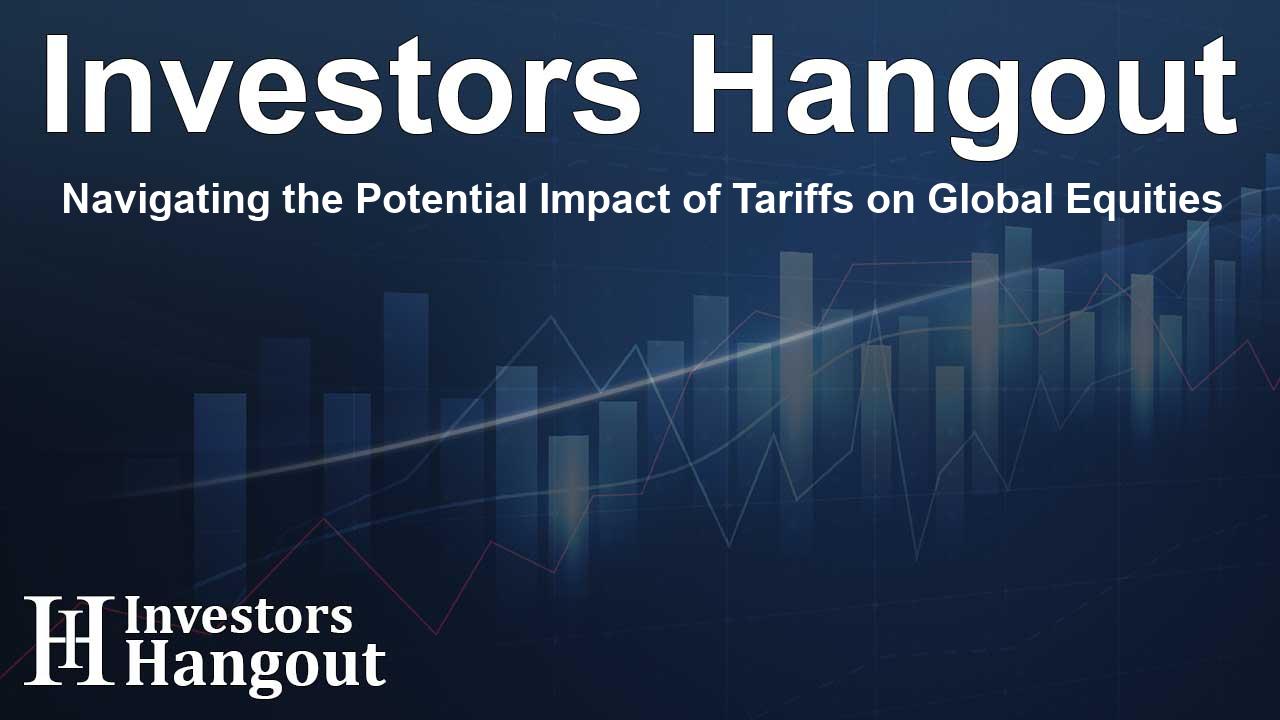Navigating the Potential Impact of Tariffs on Global Equities

Understanding the Tariff Landscape and Its Impact
In today's intricate financial landscape, one pivotal decision shapes our investment strategy: the balance between foreign and US stocks. Current market trends indicate that a greater allocation to international equities has yielded superior performance so far this year. However, with the possibility of impending tariff increases under a new trade policy, it becomes imperative to examine whether this favorable trend can endure amidst heightened trade tensions.
Current Market Performance Trends
Analysis shows that international equities have outperformed their US counterparts this year. The trend has sparked discussions around the sustainability of this performance in light of potential tariff escalations. The key question many are asking is whether the proposed increases in tariffs signal a shift in the global trading environment that could negatively affect foreign stocks.
Recent Developments in Tariff Policy
Recent communications from the US administration suggest significant changes might be on the horizon. The introduction of substantial tariffs on imports from major trading partners like the European Union and Mexico raises concerns about the broader implications for the international markets. For instance, a 30% tariff on EU and Mexican goods has been announced, alongside a 35% tariff on imports from Canada. Analysts are questioning if this series of tariff announcements is merely a bargaining strategy or if it represents a substantial alteration in trade policy.
Uncertainties Surrounding US Trade Strategy
Among the concerns is the ambiguity surrounding the administration's ultimate trade objectives. Is the goal a restructuring of global trade to favor low tariffs, or is it the reduction of the US trade deficit? The challenges of reconciling multiple objectives could lead to a prolonged period of volatility in trade relations. Investors should remain vigilant as the intricacies of these negotiations unfold.
The Market's Response to Trade Policies
The market's reaction to these announcements has been mixed. Despite a brief resurgence in foreign equities, recent indicators show that this momentum might be waning. The relative performance of an ETF representing global stocks excluding the US compared to the S&P 500 highlights a reversal in fortunes. These shifts indicate that while foreign stocks have seen periods of outperformance, they remain susceptible to sudden changes in market sentiment, especially regarding tariff and trade policies.
Economic Impacts of Tariff Increases
As the trade landscape evolves, one thing appears increasingly certain: elevated tariffs will have far-reaching implications not only for domestic economic activity but also for global growth. Economic experts warn that a rise in average tariffs to approximately 15% could adversely impact growth rates across all nations involved in international trade.
Conclusion and Considerations for Investors
In the coming weeks and months, the decisions made by the administration regarding tariffs could dictate market trajectories. Investors need to stay informed about these developments, as understanding the implications of US trade policy is essential for anticipating shifts in the global equities market. The balance of investment strategy, particularly the decision to favor international over domestic stocks, must be reconsidered in light of ongoing trade negotiations.
Frequently Asked Questions
What is the main focus of the article?
The article discusses the potential impacts of rising US tariffs on the performance of global equities.
How have foreign equities performed compared to US stocks?
Foreign equities have outperformed US stocks in recent times, presenting investors with favorable returns.
What recent tariff changes have been announced?
The US has announced significant tariffs, including a 30% tariff on goods from the European Union and a 35% tariff on Canadian imports.
What are the potential economic implications of increased tariffs?
Elevated tariffs could negatively impact economic growth rates across countries involved in world trade.
How should investors respond to these developments?
Investors should closely monitor ongoing trade negotiations and reconsider their strategies in light of the evolving tariff landscape.
About The Author
Contact Riley Hayes privately here. Or send an email with ATTN: Riley Hayes as the subject to contact@investorshangout.com.
About Investors Hangout
Investors Hangout is a leading online stock forum for financial discussion and learning, offering a wide range of free tools and resources. It draws in traders of all levels, who exchange market knowledge, investigate trading tactics, and keep an eye on industry developments in real time. Featuring financial articles, stock message boards, quotes, charts, company profiles, and live news updates. Through cooperative learning and a wealth of informational resources, it helps users from novices creating their first portfolios to experts honing their techniques. Join Investors Hangout today: https://investorshangout.com/
The content of this article is based on factual, publicly available information and does not represent legal, financial, or investment advice. Investors Hangout does not offer financial advice, and the author is not a licensed financial advisor. Consult a qualified advisor before making any financial or investment decisions based on this article. This article should not be considered advice to purchase, sell, or hold any securities or other investments. If any of the material provided here is inaccurate, please contact us for corrections.
